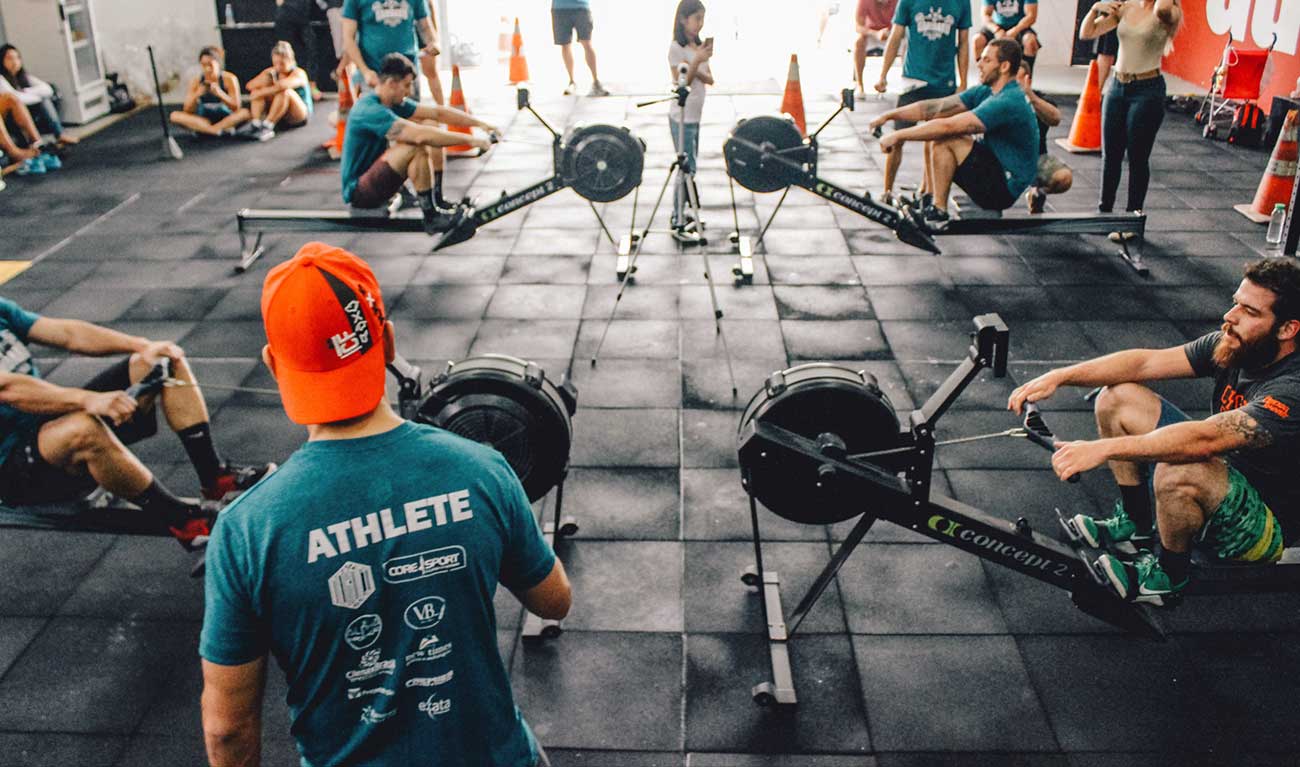
Numerous studies tell us about the benefits and risks of consuming caffeine in our daily lives: from being a dangerous ingredient for people suffering from hypertension, or pregnant women, to benefits such as optimizing our energy and being a natural stimulant.
In today’s post we are going to talk about how caffeine affects our training and sports performance, why we should include caffeine in our diet (but without excess), and when is the best time of day to drink caffeine and thus achieve the best results.
As you may have heard, caffeine intake is especially important for athletes, as it reduces sensations such as fatigue, pain, or exertion.
So we are not going to make you wait any longer, and we are going to talk about how caffeine consumption affects sports performance, its effects, and when is the best time of day to take it. Take note!
First, what is caffeine?
Caffeine is a substance found naturally in the leaves and seeds of many plants. This substance is a natural stimulant of the central nervous system, and a potential diuretic.
One of the properties of caffeine is that, when absorbed by our body, it quickly passes to the brain; that is, this substance does not accumulate in the bloodstream or is stored in the body, and it leaves our body through urine after it has been consumed.
Even though many people have this substance as a necessity, the reality is that nutritionally speaking, it can be ignored in our diet.
Another curious fact about caffeine is that it is considered an Adenosine antagonist, that is, it works against Adenosine, preventing the elevation of pain levels. In other words, caffeine does not alter the difficulty or intensity of the exercise, just our mental perception of pain.
The effects of caffeine can remain in our body for a maximum of six hours, so if you are a person with great sensitivity, you may notice its side effects during this period, among which the state of alertness and nervousness stands out.
What is caffeine for?
There are already numerous studies that conclude that moderate caffeine consumption can have positive effects on the brain and physical performance. Some of these positive effects can be:
- Reduces the feeling of tiredness and fatigue.
- Increases alertness, attention and concentration.
- It can improve the mood.
- If combined with glucose, it can even promote learning and increase verbal memory capacity.
Effects of caffeine on sports performance
A team of researchers from the University of Granada led by Francisco Amaro Gaete, who works closely with the Academy by Alpha Fit training department, have conducted a study on how caffeine intake (about 3 mg/kg, or what translates into a well-charged coffee) in a period of approximately half an hour before performing aerobic exercise, significantly increases fat burning.
In addition, this study shows how the time of day in which caffeine intake occurs influences exercise or physical activity, that is, if it is in the afternoon, the effects produced by caffeine are noticed more than if it is in the morning.
The objective of this study is to find out if caffeine, one of the most consumed ergogenic substances in the world, improves and positively influences sports performance.
Effect of caffeine in athletes
As we have mentioned before, caffeine is important in the sports field, since it is considered a natural supplement that favors physical and mental performance.
The use of caffeine has become widespread in recent years; both in elite athletes and amateurs who resort to this drink to improve performance, accelerate fat burning, and reduce fatigue. Now we are going to put special emphasis on the effects of caffeine that is acquired in the pre-workout or post-workout.

Caffeine in pre-workout
As we have already mentioned, caffeine is a powerful stimulator of the central nervous system, and it has been shown to increase physical and mental capacity.
In the pre-workout, it is recommended to ingest caffeine approximately one hour before exercising since its peak in the blood is approximately 45 or 60 minutes after its ingestion.
In this case, caffeine is recommended for endurance events, specific team sports such as football, basketball, or rugby, specific sports such as paddle tennis or tennis, and high-intensity runs between 1 and 3 minutes. This is because the research that has been done is less conclusive when it comes to the strength and energy of athletes.
Post-workout caffeine
Post-workout caffeine is used to:
- Recover energy: After training, the body and muscles suffer from fatigue. Caffeine intake helps recovery and maintain oxygen levels.
- Pain reduction: If we have previously discussed that it helps in training when we finish a hard workout the sensation of pain may be greater, and in this case, caffeine is used as an analgesic after a high-intensity routine since it provides a faster recovery quickly and produces an effect of improvement after the training session.
- It lengthens and promotes fat burning, as well as stimulating the metabolism several hours after a workout.
Other methods to improve sports performance
There are many methods to improve sports performance, but what we have to be clear about is that sports performance refers to the means used to achieve our goal. The key to improving sports performance is ourselves, and it is that we will achieve the best results if we make changes in our lives.
Physical and mental changes
To improve our sports performance we have to analyze both the aspects that involve physical and mental health.
Physical Health
Within physical health we find these 5 fundamental aspects that we must take into account:
- Good nutrition: In order to have a good sports performance, it is necessary that we have a healthy and varied nutrition so that it provides us with all the necessary nutrients for a good performance on a day-to-day basis.
- Hydration: It is essential for the proper functioning of the body. Dehydration considerably increases the risk of injury, and decreases athletic performance.
- Adapt meal times to our training: This is very important so that meals and their digestion process do not interfere with sports practice, as this will have negative repercussions on sports performance. You must wait 3 hours after eating, and more if it has been copious or high in fat and protein.
- Create habits: Discipline is essential to make it easier for us to want to train and not lose motivation.
- Listen to your body: It is important to find a tune with our body in order to prevent injuries. We should not ignore the discomfort we feel.
Mental health
Within mental health we find another 5 fundamental aspects that improve our sports performance:
- Think positive: The process is always long, so it is important to think positive and trust that sooner or later we will reach our goal.
- Set objective: This process is closely linked to the previous one, and it is essential to set short, medium and long-term objectives. This helps keep us positive and motivated throughout the process.
- Evaluate the results: Not only measure the final result, but the process as a whole in order to have a more complete vision of how we have improved, and assess the modifications that we can make to improve little by little.
- Rest: It is not only important on a physical level, but also on a mental level. It is as important as training to rest, and to recover from physical activity in order to perform better the next day, and above all, not to injure ourselves.
- Enjoy: This is the most important thing to maintain motivation so that we like the sport we practice and motivate us to continue.

Electrostimulation as an extra effort
Electrostimulation is a technology that is increasingly used in both the sports and aesthetic fields.
This is because this technology is very versatile and, above all, it allows us to achieve our objectives in a faster, more efficient and visible way.
EMS exercises muscles using local electrical impulses. The impulses are generated by a device, and transmitted by the electrodes strategically placed in the alpha fit electrostimulation suits.
These impulses penetrate the deepest muscle fibers, causing a powerful muscle contraction; so that we exercise the muscles more effectively and powerfully.
That is why electrostimulation is considered an essential complement to achieve your goals and improve sports performance in a fast, effective and visible way.
We can do electrostimulation or electrofitness training 2 or 3 times a week.
Benefits of electrostimulation in sports performance
Apart from improving sports performance, electrostimulation also offers benefits such as:
- Slim down and reduce fat.
- Toning and muscle definition.
- Relieve the stress.
- Reduces chronic pain such as low back pain.
- Firms the glutes.
- Strengthens the pelvic floor.
- Eliminate cellulite.
Conclusion
These are some of the multiple benefits that alpha fit electrostimulation and caffeine provide, both physically and mentally.






